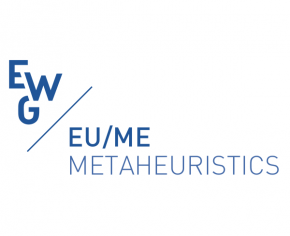(Quoted from: Fred Glover and Kenneth Sörensen (2015) Metaheuristics. Scholarpedia, 10(4):6532.)
A metaheuristic is a high-level problem-independent algorithmic framework that provides a set of guidelines or strategies to develop heuristic optimization algorithms (Sörensen and Glover, 2013). Notable examples of metaheuristics include genetic/evolutionary algorithms, tabu search, simulated annealing, variable neighborhood search, (adaptive) large neighborhood search, and ant colony optimization, although many more exist. A problem-specific implementation of a heuristic optimization algorithm according to the guidelines expressed in a metaheuristic framework is also referred to as a metaheuristic. The term was coined by Glover (1986) and combines the Greek prefix meta- (metá, beyond in the sense of high-level) with heuristic (from the Greek heuriskein or euriskein, to search).
Metaheuristic algorithms, i.e., optimization methods designed according to the strategies laid out in a metaheuristic framework, are — as the name suggests — always heuristic in nature. This fact distinguishes them from exact methods, that do come with a proof that the optimal solution will be found in a finite (although often prohibitively large) amount of time. Metaheuristics are therefore developed specifically to find a solution that is “good enough” in a computing time that is “small enough”. As a result, they are not subject to combinatorial explosion – the phenomenon where the computing time required to find the optimal solution of NP-hard problems increases as an exponential function of the problem size.
Metaheuristics have been demonstrated by the scientific community to be a viable, and often superior, alternative to more traditional (exact) methods of mixed-integer optimization such as branch and bound and dynamic programming. Especially for complicated problems or large problem instances, metaheuristics are often able to offer a better trade-off between solution quality and computing time. Moreover, metaheuristics are more flexible than exact methods in two important ways. First, because metaheuristic frameworks are defined in general terms, metaheuristic algorithms can be adapted to fit the needs of most real-life optimization problems in terms of expected solution quality and allowed computing time, which can vary greatly across different problems and different situations. Secondly, metaheuristics do not put any demands on the formulation of the optimization problem (like requiring constraints or objective functions to be expressed as linear functions of the decision variables). However, this flexibility comes at the cost of requiring considerable problem-specific adaptation to achieve good performance.


